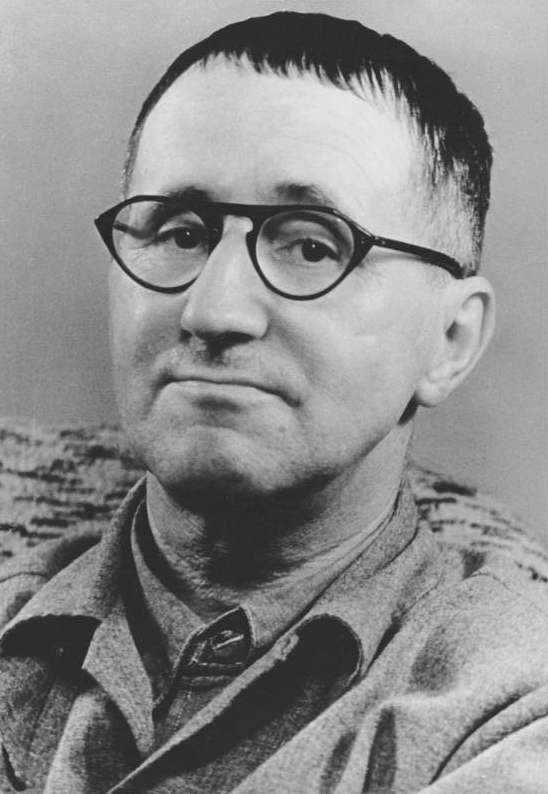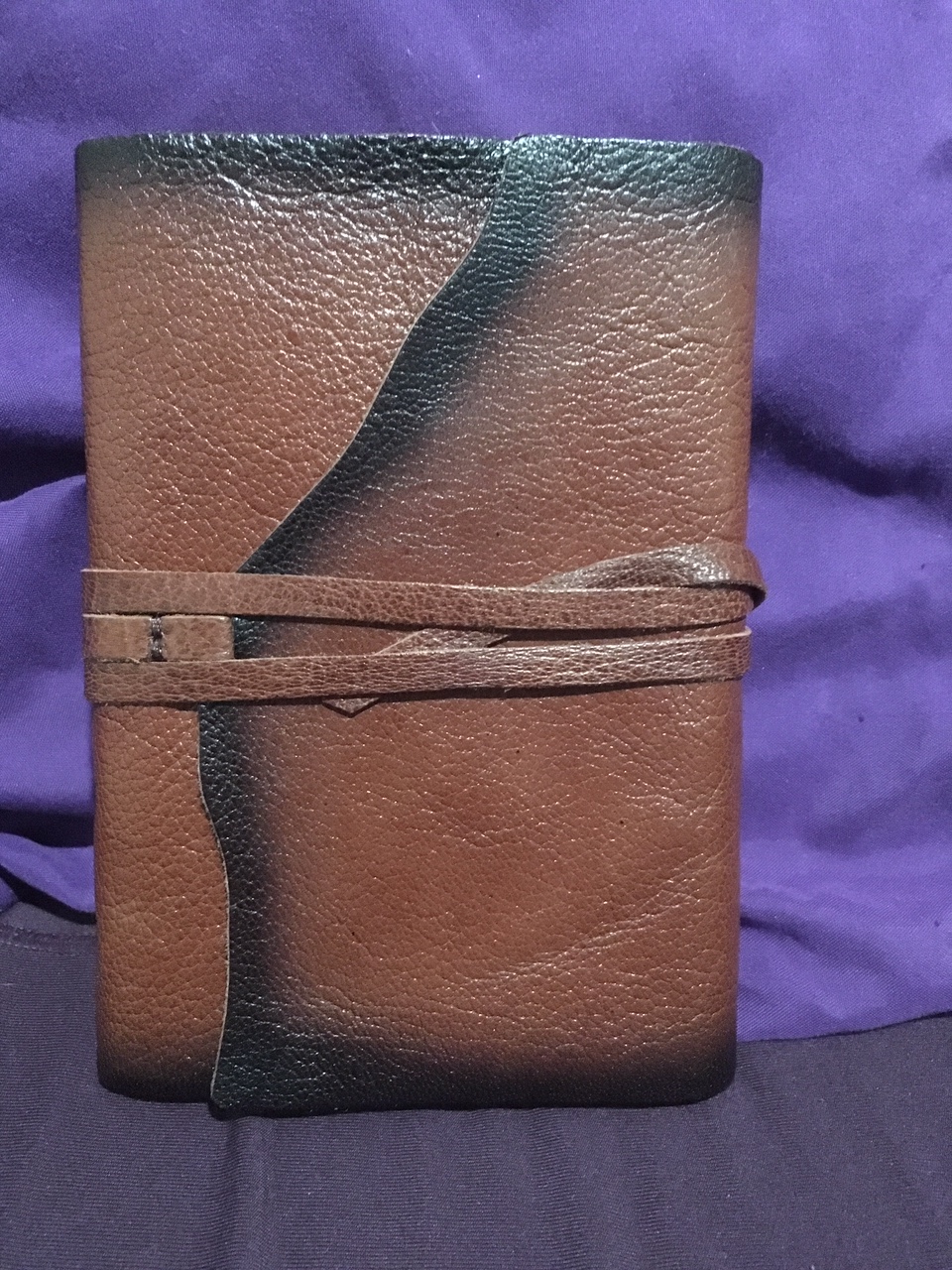|
Theatrical Style
There are four basic theatrical forms either defined, implied, or derived by or from Aristotle: Tragedy; Comedy; Melodrama; and Drama. Any number of styles can be used to convey these forms. A good working definition of, "Style", is ''how'' something is done. Theatrical styles are influenced by their time and place, artistic and other social structures, as well as the individual style of the particular artist or artists. As theater is a mongrel art form, a production may or may not have stylistic integrity with regard to script, acting, direction, design, music, and venue. Styles There are a variety of theatrical styles used in theatre/drama. These include Naturalism Portraying life on stage with close attention to detail, based on observation of real life. Cause and effect are central to the script's structure, with the subjects focused on conflicts of "nature vs. nurture", the natural order of things, survival, notions of evolution. The production style is one of everyday ... [...More Info...] [...Related Items...] OR: [Wikipedia] [Google] [Baidu] |
Naturalism (theater)
Naturalism is a movement in European drama and theatre that developed in the late 19th and early 20th centuries. It refers to theatre that attempts to create an illusion of reality through a range of dramatic and theatrical strategies. Interest in naturalism especially flourished with the French playwrights of the time, but the most successful example is Strindberg's play ''Miss Julie'', which was written with the intention to abide by both his own particular version of naturalism, and also the version described by the French novelist and literary theoretician, Emile Zola. Zola's term for naturalism is ''la nouvelle formule''. The three primary principles of naturalism (''faire vrai, faire grand'' and ''faire simple'') are first, that the play should be realistic, and the result of a careful study of human behaviour and psychology. The characters should be flesh and blood; their motivations and actions should be grounded in their heredity and environment. The presentation of ... [...More Info...] [...Related Items...] OR: [Wikipedia] [Google] [Baidu] |
Theatrical Realism
Realism in the theatre was a general movement that began in 19th-century theatre, around the 1870s, and remained present through much of the 20th century. It developed a set of dramatic and theatrical conventions with the aim of bringing a greater fidelity of real life to texts and performances. These conventions occur in the text, (set, costume, sound, and lighting) design, performance style, and narrative structure. They include recreating on stage a facsimile of real life except missing a fourth wall (on proscenium arch stages). Characters speak in naturalistic, authentic dialogue without verse or poetic stylings, and acting is meant to emulate human behaviour in real life. Narratives typically are psychologically driven, and include day-to-day, ordinary scenarios. Narrative action moves forward in time, and supernatural presences (gods, ghosts, fantastic phenomena) do not occur. Sound and music are diegetic only. Part of a broader artistic movement, it includes Naturalism an ... [...More Info...] [...Related Items...] OR: [Wikipedia] [Google] [Baidu] |
Expressionism
Expressionism is a modernist movement, initially in poetry and painting, originating in Northern Europe around the beginning of the 20th century. Its typical trait is to present the world solely from a subjective perspective, distorting it radically for emotional effect in order to evoke moods or ideas. Expressionist artists have sought to express the meaningVictorino Tejera, 1966, pages 85,140, Art and Human Intelligence, Vision Press Limited, London of emotional experience rather than physical reality. Expressionism developed as an avant-garde style before the First World War. It remained popular during the Weimar Republic,Bruce Thompson, University of California, Santa Cruzlecture on Weimar culture/Kafka'a Prague particularly in Berlin. The style extended to a wide range of the arts, including expressionist architecture, painting, literature, theatre, dance, film and music. The term is sometimes suggestive of angst. In a historical sense, much older painters such as ... [...More Info...] [...Related Items...] OR: [Wikipedia] [Google] [Baidu] |
Theater Of The Absurd
The Theatre of the Absurd (french: théâtre de l'absurde ) is a post–World War II designation for particular plays of absurdist fiction written by a number of primarily European playwrights in the late 1950s. It is also a term for the style of theatre the plays represent. The plays focus largely on ideas of existentialism and express what happens when human existence lacks meaning or purpose and communication breaks down. The structure of the plays is typically a round shape, with the finishing point the same as the starting point. Logical construction and argument give way to irrational and illogical speech and to the ultimate conclusion—silence. Etymology Critic Martin Esslin coined the term in his 1960 essay "The Theatre of the Absurd", which begins by focusing on the playwrights Samuel Beckett, Arthur Adamov, and Eugène Ionesco. Esslin says that their plays have a common denominator — the "absurd", a word that Esslin defines with a quotation from Ionesco: "absurd is ... [...More Info...] [...Related Items...] OR: [Wikipedia] [Google] [Baidu] |
Epic Theatre
Epic theatre (german: episches Theater) is a theatrical movement arising in the early to mid-20th century from the theories and practice of a number of theatre practitioners who responded to the political climate of the time through the creation of new political dramas. Epic theatre is not meant to refer to the scale or the scope of the work, but rather to the form that it takes. Epic theatre emphasizes the audience's perspective and reaction to the piece through a variety of techniques that deliberately cause them to individually engage in a different way. The purpose of epic theatre is not to encourage an audience to suspend their disbelief, but rather to force them to see their world as it is. History The term "epic theatre" comes from Erwin Piscator who coined it during his first year as director of Berlin's Volksbühne (1924–27).Wiles (1980). Piscator aimed to encourage playwrights to address issues related to "contemporary existence." This new subject matter wou ... [...More Info...] [...Related Items...] OR: [Wikipedia] [Google] [Baidu] |
Melodrama
A modern melodrama is a dramatic work in which the plot, typically sensationalized and for a strong emotional appeal, takes precedence over detailed characterization. Melodramas typically concentrate on dialogue that is often bombastic or excessively sentimental, rather than action. Characters are often flat, and written to fulfill stereotypes. Melodramas are typically set in the private sphere of the home, focusing on morality and family issues, love, and marriage, often with challenges from an outside source, such as a "temptress", a scoundrel, or an aristocratic villain. A melodrama on stage, filmed, or on television is usually accompanied by dramatic and suggestive music that offers cues to the audience of the drama being presented. In scholarly and historical musical contexts, ''melodramas'' are Victorian dramas in which orchestral music or song was used to accompany the action. The term is now also applied to stage performances without incidental music, novels, films, t ... [...More Info...] [...Related Items...] OR: [Wikipedia] [Google] [Baidu] |
Theatre Of Cruelty
The Theatre of Cruelty (french: Théâtre de la Cruauté, also french: Théâtre cruel) is a form of theatre generally associated with Antonin Artaud. Artaud, who was briefly a member of the surrealist movement, outlined his theories in '' The Theatre and Its Double''. The Theatre of Cruelty can be seen as a break from traditional Western theatre and a means by which artists assault the senses of the audience. Artaud's works have been highly influential on artists including Jean Genet, Jerzy Grotowski, Peter Brook, and Romeo Castellucci. History Antonin Artaud was well known as an actor, playwright, and essayist of avant-garde theatre, and briefly a member of the surrealist movement in Paris from 1924 - 1926, before his 'radical independence and his uncontrollable personality, perpetually in revolt, brought about his excommunication by André Breton.' Much of the avant-garde theatre developed in France from 1914 to 1939 can be seen as a revolt against tradition. Deeply affec ... [...More Info...] [...Related Items...] OR: [Wikipedia] [Google] [Baidu] |
Physical Theatre
Physical theatre is a genre of theatrical performance that encompasses storytelling primarily through physical movement. Although several performance theatre disciplines are often described as "physical theatre," the genre's characteristic aspect is a reliance on the performers' physical motion rather than, or combined with, text to convey storytelling. Performers can communicate through various body gestures (including using the body to portray emotions). Common elements Certain institutions suggest that all physical theatre genres share common characteristics, although individual performances do not need to exhibit all such characteristics to be defined as physical theatre. Research into the training or "work" of physical theatre artists cites an amalgamation of numerous elements adopted as a means to further inform the theatrical research/production. These elements include: * Inter-disciplinary origins, spanning music, dance, visual art, etc., as well as theatre * Challengi ... [...More Info...] [...Related Items...] OR: [Wikipedia] [Google] [Baidu] |
Poor Theatre
Jerzy Marian Grotowski (; 11 August 1933 – 14 January 1999) was a Polish theatre director and theorist whose innovative approaches to acting, training and theatrical production have significantly influenced theatre today. He was born in Rzeszów, in southeastern Poland, in 1933 and studied acting and directing at the Ludwik Solski Academy of Dramatic Arts in Kraków and Russian Academy of Theatre Arts in Moscow. He debuted as a director in 1957 in Kraków with Eugène Ionesco's play ''Chairs'' and shortly afterward founded a small laboratory theatre in 1959 in the town of Opole in Poland. During the 1960s, the company began to tour internationally and his work attracted increasing interest. As his work gained wider acclaim and recognition, Grotowski was invited to work in the United States and left Poland in 1982. Although the company he founded in Poland closed a few years later in 1984, he continued to teach and direct productions in Europe and America. However, Grotowski b ... [...More Info...] [...Related Items...] OR: [Wikipedia] [Google] [Baidu] |
Immersive Theatre
Immersive theater differentiates itself from traditional theater by removing the stage and immersing audiences within the performance itself. Often, this is accomplished by using a specific location ('' site-specific''), allowing audiences to converse with the actors and interact with their surroundings (''interactive''), thereby breaking the fourth wall. (Immersive theater and interactive theater are not necessarily synonymous; immersive theater may not have interactive elements in it at all, and interactive theater may not be immersive in the core sense.) In ''choose-your-own-adventure theater'', agency is given to the audience to participate in changing the narrative while the performance is taking place. ''Bespoke theater'', invented by ''Fondudes'', extends participation to pre-production so each show is customized per audience at script level. Modern forms of immersive theater have a wide range of definitions, all based upon the degree and type of engagement found between act ... [...More Info...] [...Related Items...] OR: [Wikipedia] [Google] [Baidu] |
Drama
Drama is the specific Mode (literature), mode of fiction Mimesis, represented in performance: a Play (theatre), play, opera, mime, ballet, etc., performed in a theatre, or on Radio drama, radio or television.Elam (1980, 98). Considered as a genre of poetry in general, the dramatic mode has been contrasted with the Epic poetry, epic and the Lyric poetry, lyrical modes ever since Aristotle's ''Poetics (Aristotle), Poetics'' (c. 335 BC)—the earliest work of dramatic theory. The term "drama" comes from a Ancient Greek, Greek word meaning "deed" or "Action (philosophy), act" (Classical Greek: , ''drâma''), which is derived from "I do" (Classical Greek: , ''dráō''). The two masks associated with drama represent the traditional Genre, generic division between Comedy (drama), comedy and tragedy. In English (as was the analogous case in many other European languages), the word ''Play (theatre), play'' or ''game'' (translating the Old English, Anglo-Saxon ''pleġan'' or Latin ''l ... [...More Info...] [...Related Items...] OR: [Wikipedia] [Google] [Baidu] |








